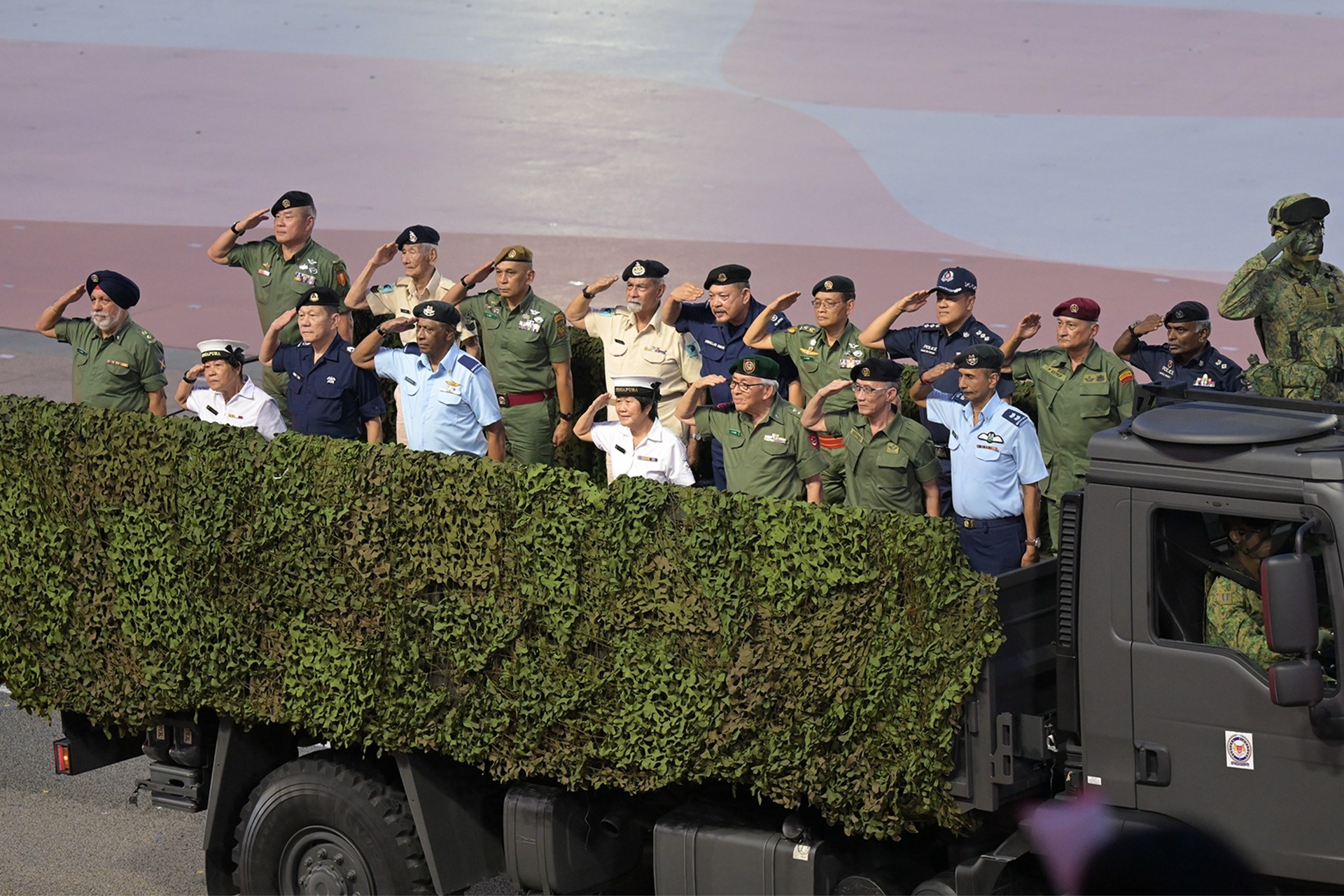PEOPLE
THE FIRST FROGMEN
09 Jan 2020
These three elderly men have a combined age of more than 200 years. Looking at their weathered faces, you'd never think that they were once the underwater heroes of post-independence Singapore.
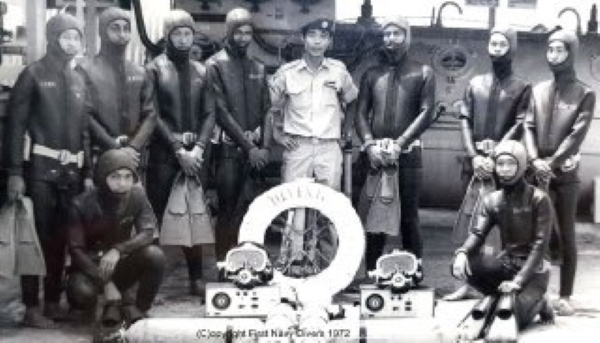

These three elderly men have a combined age of more than 200 years. Looking at their weathered faces, you'd never think that they were once the underwater heroes of post-independence Singapore,
Yet, the moment you ask them about their naval diver days, their eyes sparkle, they sit up straight and talk about their training with immense gusto and pride - as if it just happened yesterday.
They even have their own website and Facebook page to document their yesteryears!
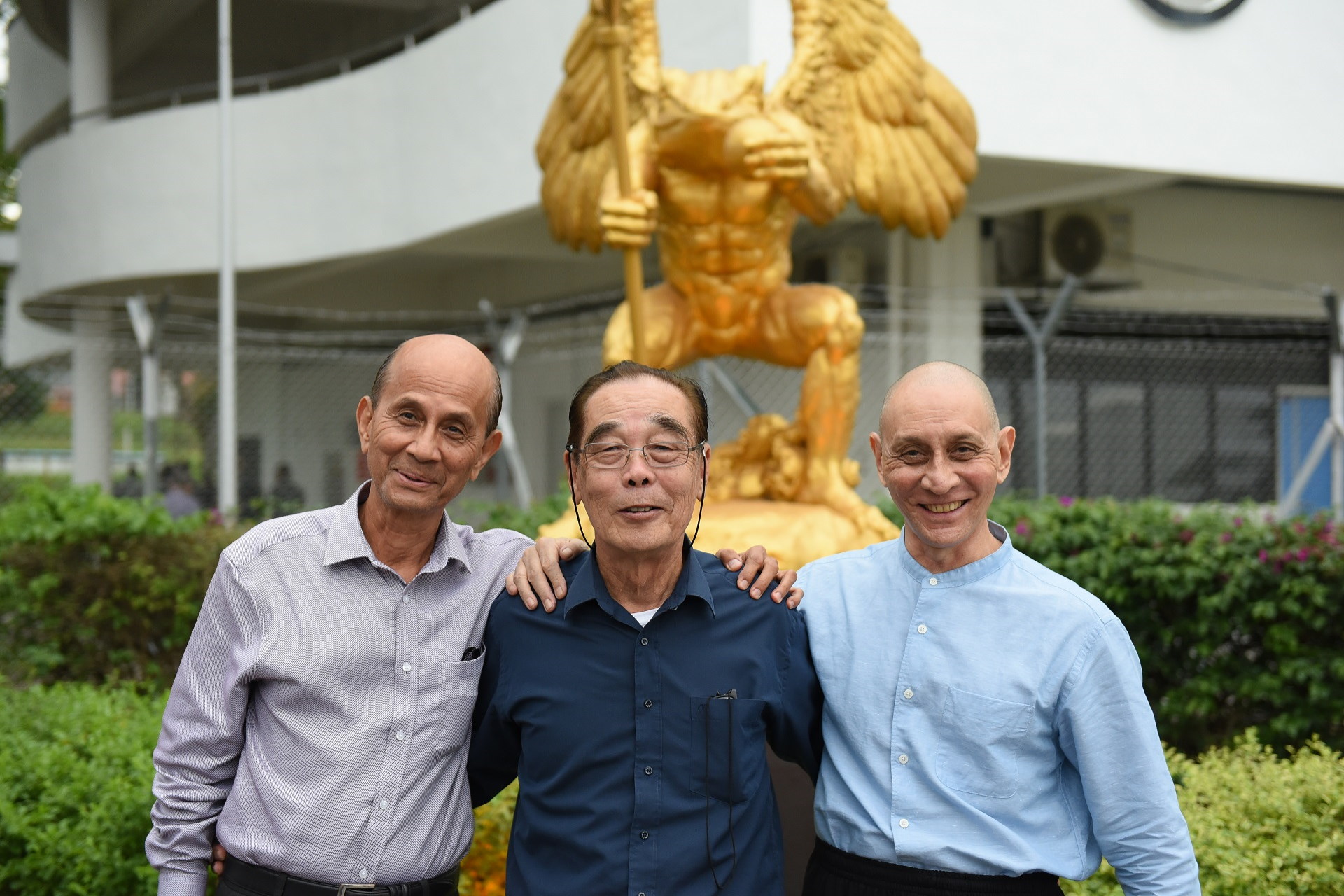
1) How tough was the selection process?
LTC (Ret) Khoo: Diving training is individual. When you're underwater, you can't even see your own hands so you need to be able to work independently, have initiative and be able to go beyond your normal endurance. Those who cannot be pushed beyond their limits, we cannot keep them.
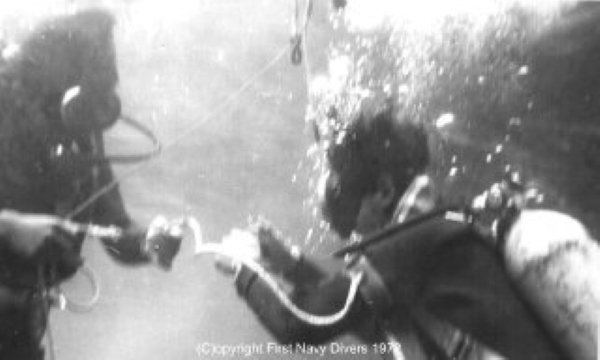
SSG (Ret) Hogan: I was 17 when I joined NDU. The selection process was difficult, but we weren't scared because the officers who conducted the selection process were very careful. They were always telling us what to expect for the next step of the selection and (even) gave us tips.
LTA (Ret) Rodrigues: First and foremost, divers needed to be fit and meet the basic health requisite like good eardrums, nasal passages and eyesight. Also, because you are diving in the dark, you need to be able to control your mind and not let your mind control you. We had almost 200 applicants but only 14 were selected. (10 graduated)
2) Why did you choose to join as naval divers?
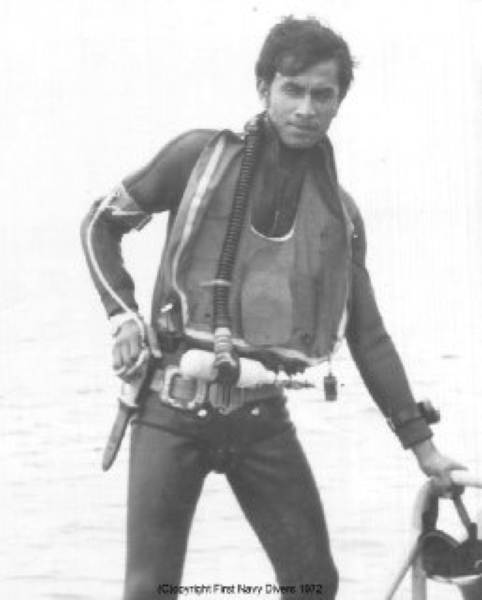
SSG (Ret) Hogan: When I was 14, the Maritime Command at that time had a Careers Day at my school and that was how I became interested. And five days after my O levels, I enlisted.
LTA (Ret) Rodrigues: I watched a lot of Sea Hunt (an American action adventure TV series about a former Navy frogman) back in the 1960s and was very inspired to become one. After completing my National Service (I was among the first batch of enlistees!), I signed on as a Regular. I like to live my life dangerously.
3) What was the most difficult or memorable part of training?
LTC (Ret) Khoo: The most memorable parts of training were how far we were pushed. During our training in Australia, we would get up at 6am, swim for 3 miles (about 4.8km) and run on the beach before having breakfast. We would then charge up our diving tanks and do a 1-mile swim underwater before having lunch. This was followed by two hours of diving theory lessons and another mile of night swim before having supper.
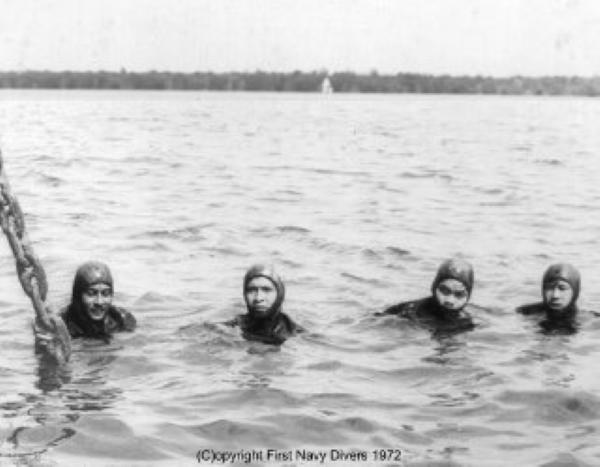
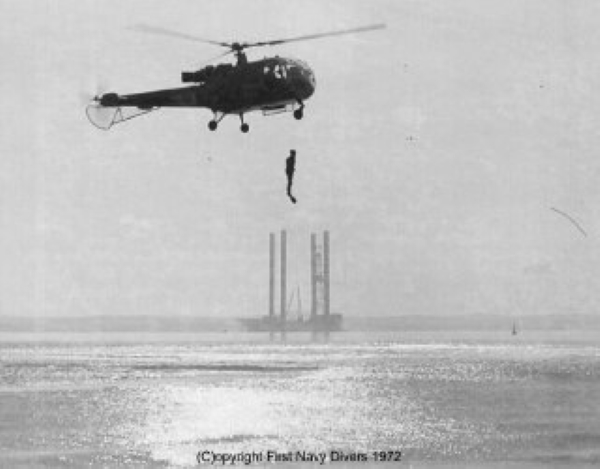
SSG (Ret) Hogan: During training, my nickname was "Bones" as I was very skinny. My scariest moment was the helicopter jump. We were jumping from the side of the helicopter at 45ft (about 14m). This meant that the rotor wash from the helicopter was one-sided. When the draft hits you after you jump out of the helicopter, it's like hitting the accelerator and you drop much faster. Today, divers are deployed from the back and the rotor wash is symmetrical. It was scary because of the impact, but the fear of washing out of course was even greater, so we all gritted and passed.
4) How did you pioneer the way for future naval divers?
LTC (Ret) Khoo: We amalgamated the UK and Australian training, removed the cold diving aspects and tailored it to Singapore's requirements. We had to make sure that they get their basics right - like confidence in water and the ability to search underwater.
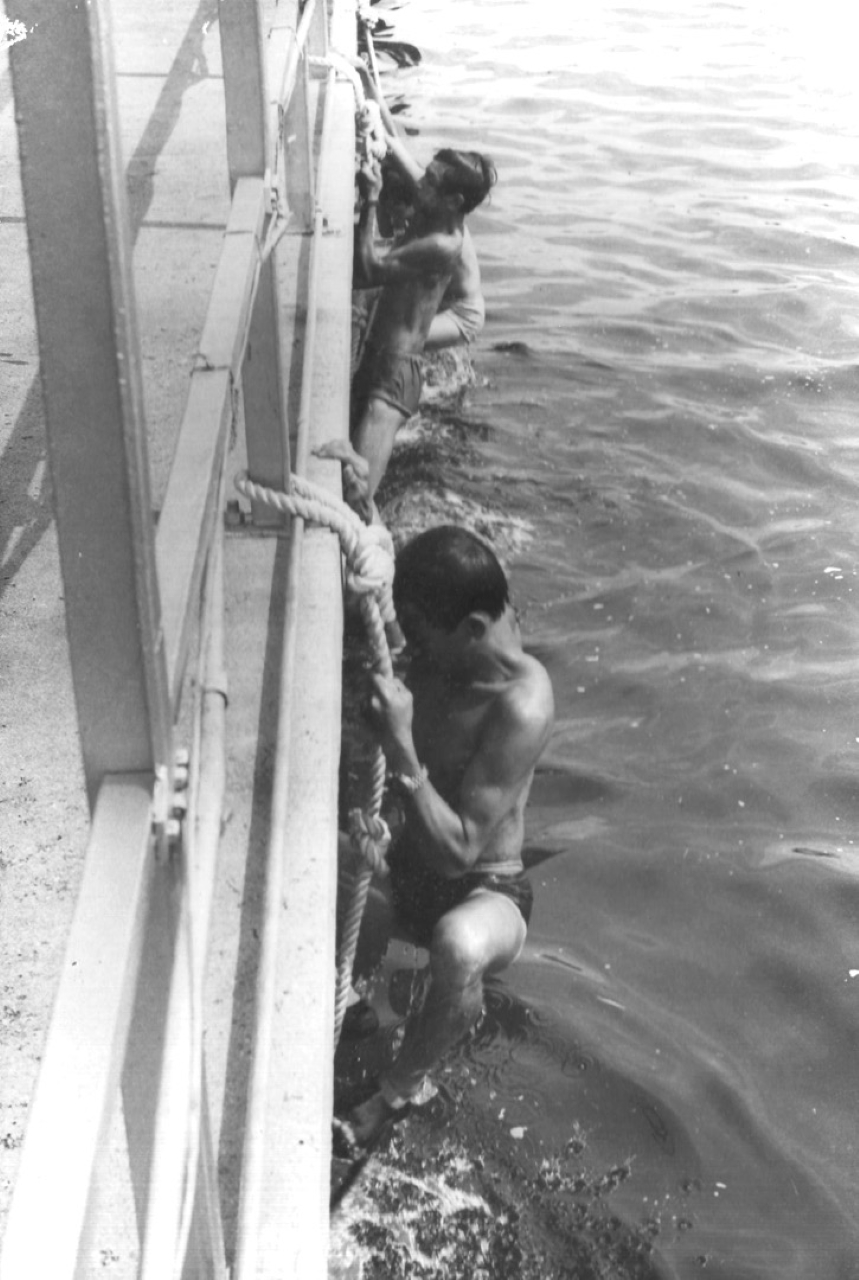
LTA (Ret) Rodrigues: No one knew what to do with the diving vocation at the time because we were the pioneers. We wanted to push the batch to the limits but also had to be careful not to overdo it because we placed a lot of emphasis on diver safety. Honestly, at the start, we were just focusing on standing up the diving unit.
5) What do you like most about being a naval diver?
SSG (Ret) Hogan: The bond. Once you've dived with someone, you can't forget the bond forged. Even on land, divers move together in a certain way which arises from the way they train and operate. It's like when one guy moves, everyone moves with him. This bond arises as a result of the environment they operate in and the senses that they're required to use in order to be successful underwater.
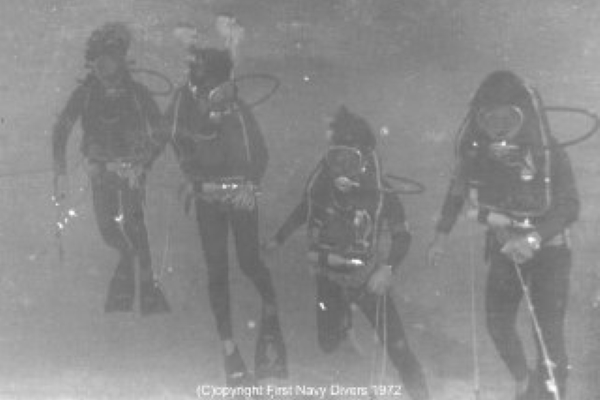
LTA (Ret) Rodrigues: When you are underwater, there needs to be a lot of trust between you and your buddy. The team spirit will always be there.
6) What were your roles then and how different is it from the NDU of today?
SSG (Ret) Hogan: We used to be defensive divers and now, the divers are performing both defensive and offensive operations. 1972 was just six years after Singapore became independent. There were a lot of underwater mines leftover from World War II and we were called to defuse them. We were providing a service that nobody else could do and were paving the way for the future.
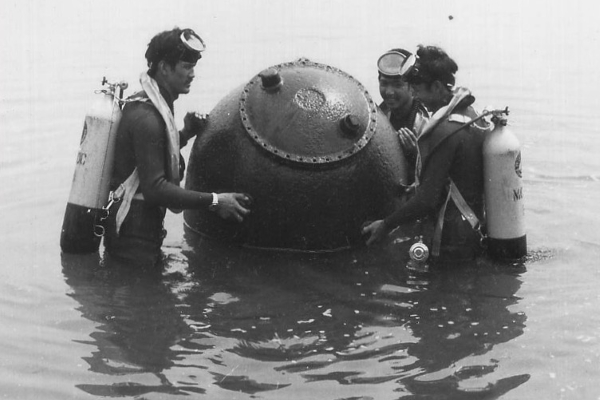
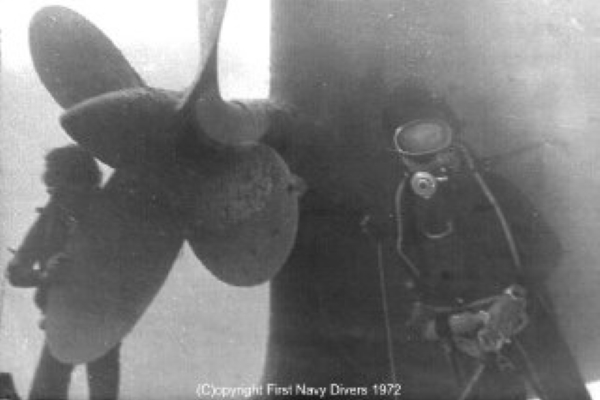
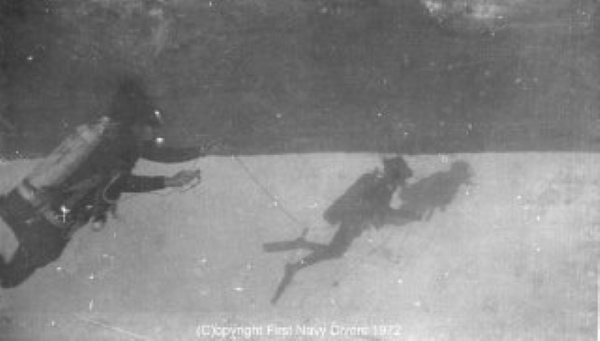
LTC (Ret) Khoo: Back then, we had to do a lot of searching for dead bodies, ship maintenance like underwater welding, mine clearance and underwater demolition. It was tough but someone's got to do all these and who else but us?
Every journey begins with a first step. We were the first step.
7) You have a website and a Facebook page. What prompted you to set it up?
SSG (Ret) Hogan: I wanted to document our adventures for many years so I wrote a book, approached publishers but was rejected. I wasn't about to give up so I took up a two-and-a-half-year webmaster's course at age 55. And with LTA (Ret) Rodrigues' encouragement, I put the story up online. The website was launched on 9 Aug 2019. We had a gathering and posted the photos on our Facebook page. From there, the thing snowballed and we even had a homecoming on 3 Jan 2020.
I did this 'cos I was determined that we shouldn't fade away into oblivion. We're not putting ourselves out there as heroes but we did do something special so people need to know about that. We don't need gratitude, we just want to say this was what we did and we are proud of it.
ALSO READ IN PEOPLE
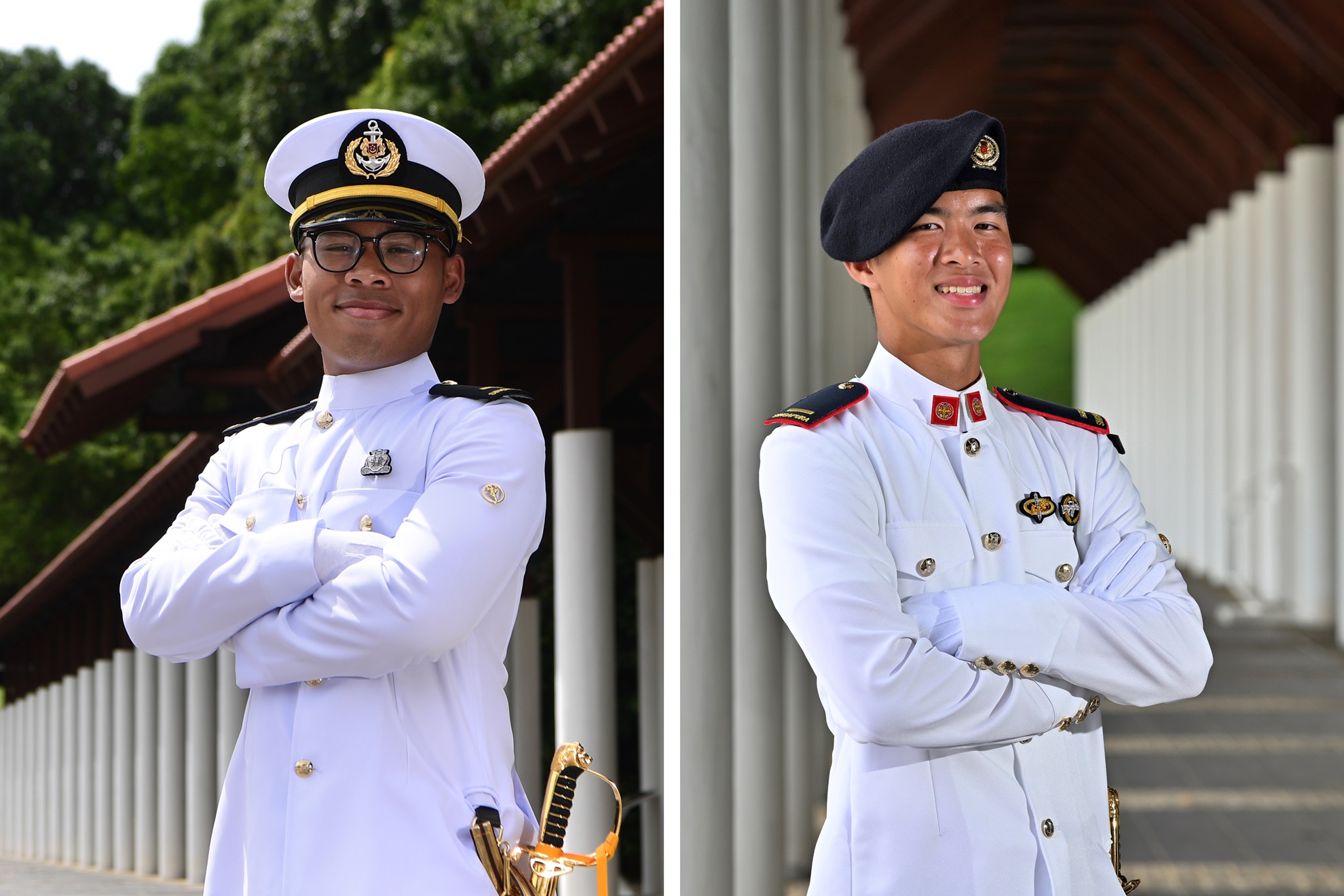
Rising above the tide & stepping forward to lead
13 Dec 2025
They’re among the SAF’s latest batch of officer graduands this year. Meet 2LT Mohamad Wira Kuriniawan and 2LT Ryan Ong, who will be heading to the Navy’s 180 Squadron and 1st Battalion, Singapore Guards respectively.
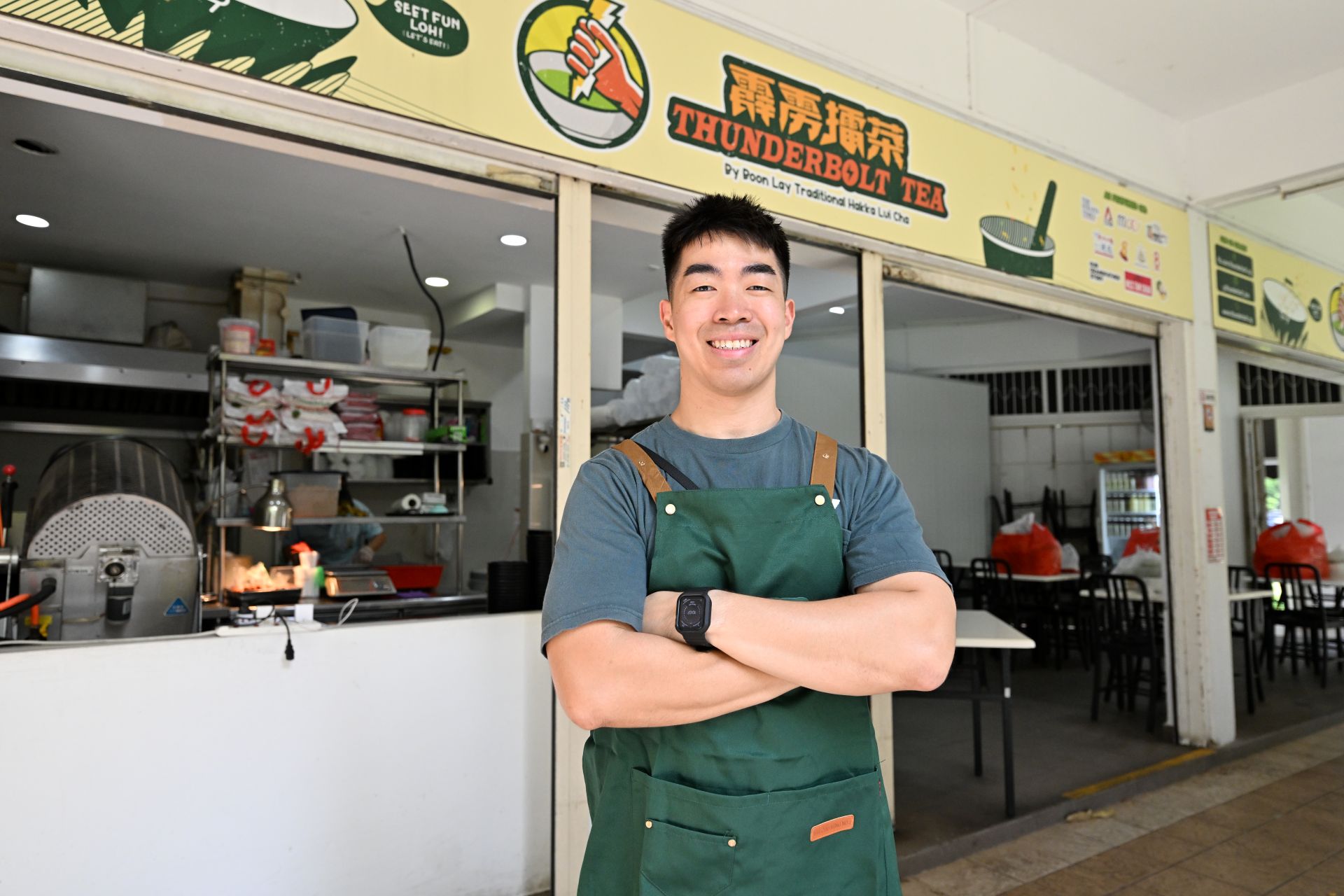
Guardian of the skies, guardian of family heritage
08 Dec 2025

Father & son, bonded by service
02 Dec 2025


